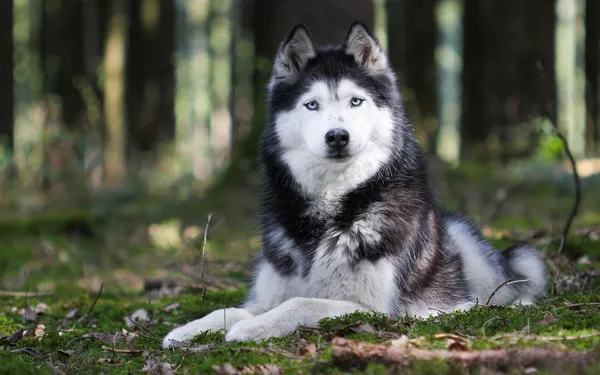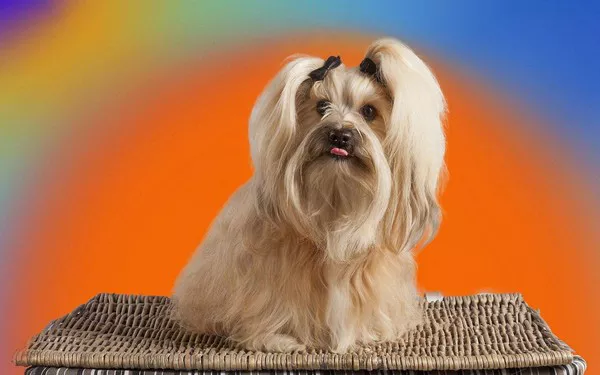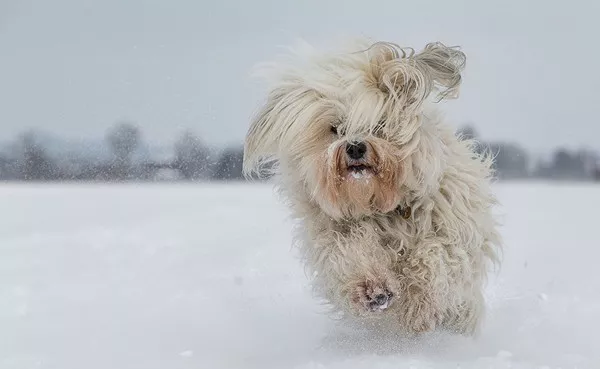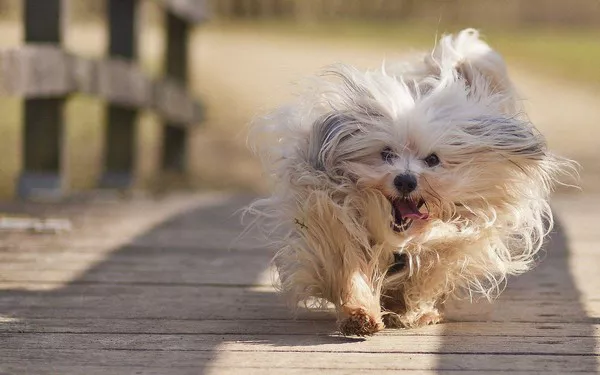Dogs are beloved companions, but one aspect of pet ownership that can sometimes dampen the experience is the issue of odor. Pet owners, particularly those considering a Schnauzer, often wonder, “Do Schnauzers stink?” This question, while simple on the surface, involves several nuanced factors, from genetics and breed characteristics to grooming habits, diet, and health. In this article, we will delve deeply into the topic, examining whether Schnauzers are prone to unpleasant odors, what causes dog smells in general, and how owners can manage and prevent unwanted smells.
Understanding Canine Odors: Why Do Some Dogs Smell More Than Others?
Before addressing the specifics of Schnauzers, it’s essential to understand why dogs in general produce odors. All dogs have a natural scent, much like humans. However, the intensity of that scent can vary dramatically based on several factors:
Sebaceous Gland Activity: Dogs have sebaceous glands in their skin that produce sebum, an oily substance that helps maintain the coat’s moisture and health. Sebum also carries the dog’s natural scent, and in some breeds, it can lead to a stronger odor, especially if not managed properly through grooming. Sebum production can increase due to factors such as hormonal changes, stress, or poor diet, potentially leading to more pronounced odors.
Bacteria and Yeast: Dogs’ skin is a habitat for various microorganisms, particularly bacteria and yeast, which naturally live on the skin and coat. When these microorganisms thrive, particularly in warm, moist environments like the ears, paws, or folds of skin, they can produce unpleasant odors. Breeds with oily or dense coats tend to have more issues with bacteria and yeast overgrowth, contributing to stronger smells.
Diet: A dog’s diet plays a crucial role in the odor they emit. High-quality, species-appropriate diets are less likely to cause problems such as flatulence, bad breath, or oily skin, all of which can contribute to a dog’s overall smell. Poor nutrition can lead to imbalances in the skin’s microbiome, increasing the likelihood of yeast or bacterial overgrowth.
Health Issues: Certain health conditions, such as skin infections, dental disease, ear infections, and gastrointestinal problems, can result in noticeable smells. For instance, an infected ear or an abscessed tooth can produce a strong, foul odor that radiates from the dog. Addressing these health problems promptly can mitigate odors.
Coat Type and Grooming Habits: The type of coat a dog has significantly impacts how they smell. Dogs with thick, double coats, or breeds that have water-resistant fur (like retrievers), tend to trap moisture and oils more easily, leading to a stronger scent. Grooming practices, such as regular bathing, brushing, and dental care, also influence the way a dog smells.
With these factors in mind, let’s turn our attention specifically to Schnauzers.
What Makes Schnauzers Different?
Schnauzers come in three distinct sizes: Miniature, Standard, and Giant. Despite their size differences, these dogs share several characteristics that impact their propensity for odor.
Coat Type and Texture: One of the most defining features of Schnauzers is their wiry, double-layered coat. This coat consists of a soft undercoat and a harsher, wiry topcoat, designed to protect the dog from the elements. The wiry texture of their coat tends to trap less moisture and debris compared to breeds with more oily or dense fur, which often makes Schnauzers less prone to odors associated with moisture retention. However, this also means that regular grooming is necessary to maintain a clean and odor-free coat.
Low Sebum Production: Unlike breeds such as retrievers or spaniels, which produce a high amount of sebum, Schnauzers tend to have lower sebaceous gland activity. This reduced sebum production generally leads to fewer issues with oily skin and the accompanying “doggy” smell. However, the flip side of this is that Schnauzers may be prone to dry skin if not properly groomed or if their diet lacks sufficient fatty acids and nutrients to support skin health.
Minimal Shedding: Schnauzers are often described as “hypoallergenic” dogs due to their minimal shedding. While no dog is completely hypoallergenic, Schnauzers shed very little, and this characteristic can also help reduce odor. The more a dog sheds, the more likely it is that dander, dirt, and oils will accumulate around the home, contributing to a pervasive smell. By shedding minimally, Schnauzers avoid this common odor issue.
Common Odor Issues in Schnauzers
While Schnauzers are generally not known for being smelly dogs, certain issues can still arise that may lead to odors if not addressed. Here are the most common sources of odor in Schnauzers:
Beard and Face Fur:
One of the most distinguishing features of a Schnauzer is its iconic beard. While this facial hair gives the breed its characteristic look, it can also be a magnet for food particles, moisture, and dirt. If not cleaned regularly, the beard can develop an unpleasant smell due to trapped food debris and bacteria. Schnauzer owners often report a “wet dog smell” emanating from their dog’s face, especially after drinking water, due to moisture becoming trapped in the beard.
Solution: Regularly wiping down the beard with a damp cloth or unscented pet wipes can help prevent this issue. Additionally, trimming the beard to a manageable length and ensuring it dries properly after meals or water can reduce odors.
Anal Glands:
Like all dogs, Schnauzers have anal glands that can occasionally become impacted or infected. When these glands aren’t expressed properly, they can produce a strong, fishy odor. While some dogs may express their anal glands naturally during bowel movements, others may need assistance from a groomer or veterinarian to prevent impaction and the accompanying smell.
Solution: Routine check-ups with a veterinarian or groomer can ensure that the dog’s anal glands are healthy and don’t become a source of odor.
Skin Conditions and Allergies:
While Schnauzers typically have lower sebum production than other breeds, they can still develop skin conditions, particularly if they have food allergies or environmental sensitivities. Dry, flaky skin or recurring infections can lead to a distinct smell. Moreover, Schnauzers are somewhat prone to atopic dermatitis, a skin allergy that can lead to itching, inflammation, and secondary infections if left untreated.
Solution: Keeping a close eye on a Schnauzer’s diet, avoiding known allergens, and maintaining a regular grooming schedule can help prevent skin issues. If symptoms persist, consulting with a veterinarian about possible food sensitivities or environmental allergies is recommended.
Ear Infections:
Schnauzers have folded, drop ears, which can create a warm, moist environment perfect for bacteria and yeast to grow. If a Schnauzer’s ears are not cleaned regularly, they may develop infections that produce a foul odor. Ear infections can also be a sign of underlying allergies or sensitivities.
Solution: Regular ear cleaning with a vet-recommended solution, especially after swimming or bathing, can prevent infections. It’s also important to monitor the ears for signs of redness, swelling, or discharge, which can indicate an infection requiring veterinary care.
See Also: Are Schnauzers Smart Dogs?
Dental Issues:
Like many small breeds, Miniature Schnauzers, in particular, are prone to dental problems, including tartar buildup, gum disease, and tooth decay. Poor dental hygiene can lead to bad breath, which may become particularly noticeable if left untreated. While bad breath alone doesn’t necessarily contribute to a “smelly” dog, severe dental disease can produce an overpowering odor.
Solution: Regular dental care, including brushing the dog’s teeth with pet-safe toothpaste and providing dental chews or professional cleanings, can mitigate this issue. Preventing tartar buildup early on is key to maintaining fresh breath and preventing more serious dental problems.
Grooming and Care Tips to Keep Schnauzers Smelling Fresh
Given the unique characteristics of Schnauzers, maintaining a regular grooming routine is essential to keeping them clean and odor-free. Below are some grooming tips tailored to Schnauzers:
Bathing: Schnauzers should be bathed every 4-6 weeks, or more frequently if they get dirty. Use a mild, dog-specific shampoo that doesn’t strip the natural oils from their coat. Be sure to thoroughly rinse the coat, as residue can cause skin irritation, which may lead to odors. Additionally, pay extra attention to their beard and facial area, as this is a common area for odors to develop.
Brushing: Regular brushing is crucial for maintaining the health of a Schnauzer’s coat. Use a slicker brush or a comb specifically designed for wiry coats to remove debris, dead hair, and dirt. Brushing helps distribute the skin’s natural oils evenly across the coat, preventing excessive dryness or oil buildup.
Ear Cleaning: As mentioned, Schnauzers’ drop ears can be prone to infection, so weekly ear cleaning is recommended. Use a vet-approved ear cleaner and gently wipe the outer ear canal with a cotton ball. Avoid using Q-tips, as these can push debris further into the ear canal.
Dental Hygiene: Brush your Schnauzer’s teeth at least two to three times a week using a dog-specific toothbrush and toothpaste. Dental chews and toys can also help reduce tartar buildup and keep their breath smelling fresh.
Trimming the Beard and Body: Professional grooming every 6-8 weeks is a good idea for keeping a Schnauzer’s coat in optimal condition. Trimming the beard and other areas of the body can prevent matting and reduce the likelihood of odor-causing bacteria accumulating in long fur.
Conclusion
In summary, while no dog is entirely odor-free, Schnauzers are generally not considered a particularly “stinky” breed. Their wiry coat, low sebum production, and minimal shedding all contribute to their reputation as a relatively clean breed. However, like all dogs, Schnauzers can develop odors if grooming is neglected or if underlying health issues such as skin infections, dental disease, or ear infections are left untreated.
With proper care, including regular grooming, a balanced diet, and attention to dental and ear hygiene, most Schnauzer owners will find that their dogs have a pleasant, neutral scent. Thus, for prospective pet owners wondering whether Schnauzers stink, the answer is a resounding “no”—provided that their grooming needs are met, and any potential health concerns are promptly addressed.
Related Topics:

























